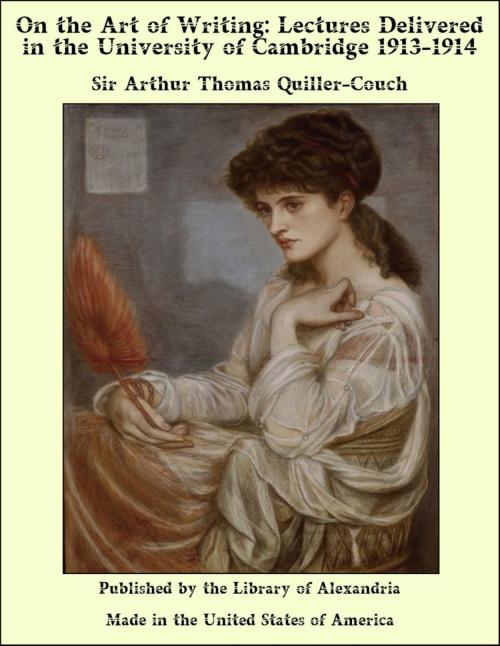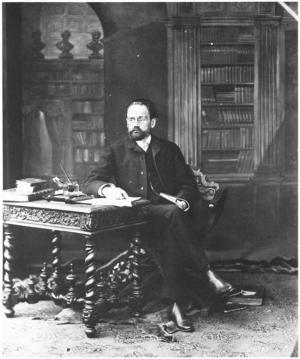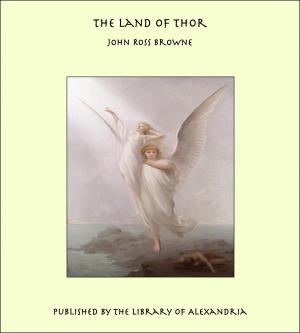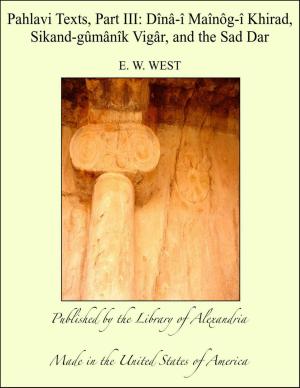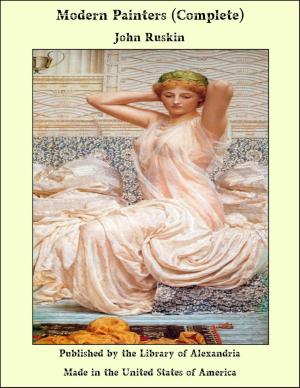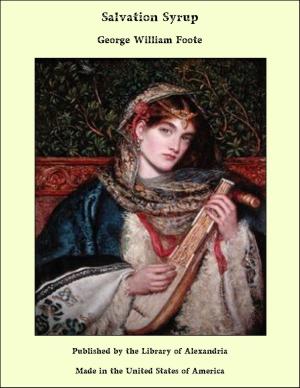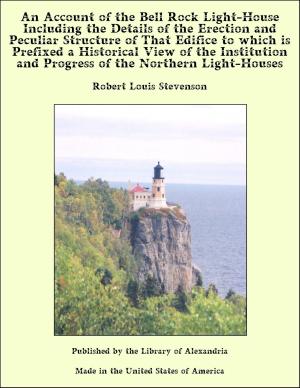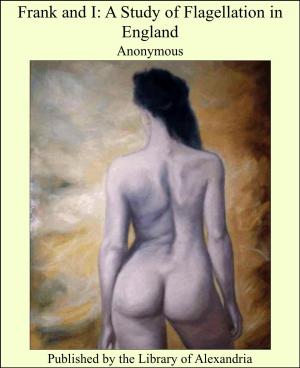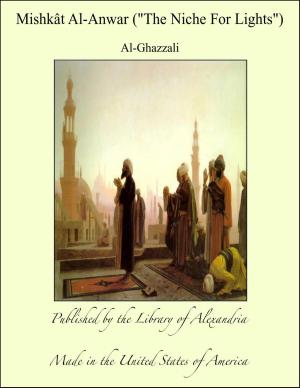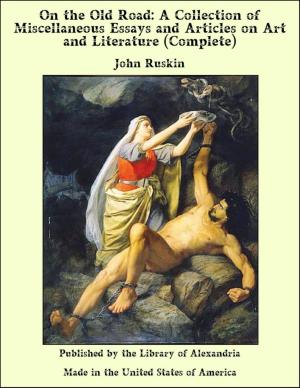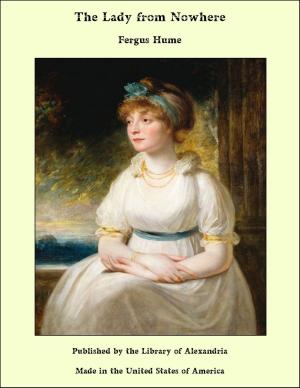On the Art of Writing: Lectures Delivered in the University of Cambridge 1913-1914
Nonfiction, Religion & Spirituality, New Age, History, Fiction & Literature| Author: | Sir Arthur Thomas Quiller-Couch | ISBN: | 9781465594143 |
| Publisher: | Library of Alexandria | Publication: | March 8, 2015 |
| Imprint: | Language: | English |
| Author: | Sir Arthur Thomas Quiller-Couch |
| ISBN: | 9781465594143 |
| Publisher: | Library of Alexandria |
| Publication: | March 8, 2015 |
| Imprint: | |
| Language: | English |
By recasting these lectures I might with pains have turned them into a smooth treatise. But I prefer to leave them (bating a very few corrections and additions) as they were delivered. If, as the reader will all too easily detect, they abound no less in repetitions than in arguments dropped and left at loose ends—the whole bewraying a man called unexpectedly to a post where in the act of adapting himself, of learning that he might teach, he had often to adjourn his main purpose and skirmish with difficulties—they will be the truer to life; and so may experimentally enforce their preaching, that the Art of Writing is a living business. Bearing this in mind, the reader will perhaps excuse certain small vivacities, sallies that meet fools with their folly, masking the main attack. That, we will see, is serious enough; and others will carry it on, though my effort come to naught. It amounts to this—Literature is not a mere Science, to be studied; but an Art, to be practised. Great as is our own literature, we must consider it as a legacy to be improved. Any nation that potters with any glory of its past, as a thing dead and done for, is to that extent renegade. If that be granted, not all our pride in a Shakespeare can excuse the relaxation of an effort—however vain and hopeless—to better him, or some part of him. If, with all our native exemplars to give us courage, we persist in striving to write well, we can easily resign to other nations all the secondary fame to be picked up by commentators.
By recasting these lectures I might with pains have turned them into a smooth treatise. But I prefer to leave them (bating a very few corrections and additions) as they were delivered. If, as the reader will all too easily detect, they abound no less in repetitions than in arguments dropped and left at loose ends—the whole bewraying a man called unexpectedly to a post where in the act of adapting himself, of learning that he might teach, he had often to adjourn his main purpose and skirmish with difficulties—they will be the truer to life; and so may experimentally enforce their preaching, that the Art of Writing is a living business. Bearing this in mind, the reader will perhaps excuse certain small vivacities, sallies that meet fools with their folly, masking the main attack. That, we will see, is serious enough; and others will carry it on, though my effort come to naught. It amounts to this—Literature is not a mere Science, to be studied; but an Art, to be practised. Great as is our own literature, we must consider it as a legacy to be improved. Any nation that potters with any glory of its past, as a thing dead and done for, is to that extent renegade. If that be granted, not all our pride in a Shakespeare can excuse the relaxation of an effort—however vain and hopeless—to better him, or some part of him. If, with all our native exemplars to give us courage, we persist in striving to write well, we can easily resign to other nations all the secondary fame to be picked up by commentators.
